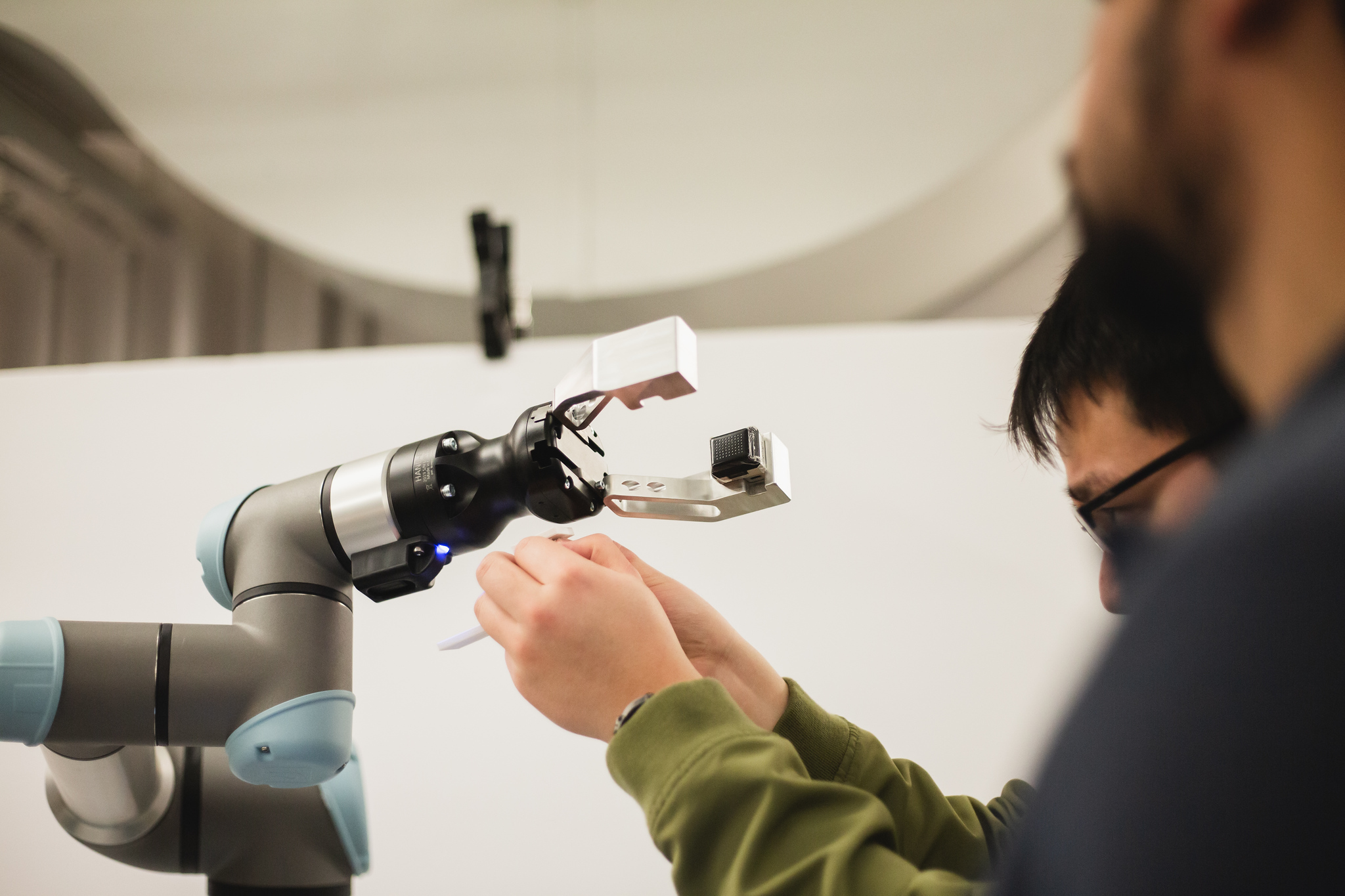
This pathway is a strong fit for students who:
- Are excited by the prospect of designing and optimizing innovative manufacturing processes.
- Value sustainability and wish to eliminate waste in manufacturing processes.
- Are interested in exploiting digital factory models and real-time data streams for designing, evaluating and optimizing manufacturing processes.
- Wish to bridge the physical and digital worlds by improving the Internet of Things (IoT).
- Have a fascination for robotics and envision a future where humans and robots work seamlessly together.
- Are interested in understanding how raw materials are transformed into finished products through efficient, high-quality production systems.
Example Occupations and Common Fields
Example occupations:
- Industrial Engineer
- Manufacturing Engineer
- Robotics Engineer
- Process Improvement Specialist
- Automation Engineer
- Quality Assurance Engineer
- Production Manager
- Operations Research Analyst
- Industrial Automation Specialist
- Control Systems Engineer
- Robotics System Integrator
Common fields:
- Automotive
- Aerospace
- Electronics
- Consumer goods manufacturing
- Pharmaceuticals
- Textiles
- Food processing
- Packaging
Courses and Experiences
- IND E 321: Statistical Quality Control
- IND E 337: Introduction to Manufacturing Systems
- IND E 338: Simulation
- IND E 426: Reliability Engineering and System Safety
- IND E 430: Manufacturing Scheduling and Inventory
- IND E 439: Plant Layout and Material Handling
- IND E 470: Systems Engineering
- IND E 537: Smart Manufacturing Systems
- IND E 570: Supply Chain Systems
- ME 123: Introduction to Visualization and Computer-Aided Design
- Special Topics: Surrogates for Digital Twin with Affiliate Professor Chiwoo Park
- Course Description: Introduction to surrogate modeling and computer experiments as essential tools for establishing digital twins in advanced manufacturing and physical science. Includes many examples in semi-conductor manufacturing, other conventional manufacturing and data-driven scientific discovery.
Frequently Asked Questions
Do I need a graduate degree specializing in this area to be marketable to the field?
No, an undergraduate degree in industrial and systems engineering can provide the foundational skills and knowledge required for many roles in smart manufacturing and robotics. However, a graduate degree might offer specialized expertise that can be beneficial for more advanced or research-oriented positions.
What are some examples of real-world areas of application?
Applications of the Smart Manufacturing & Robotics Pathway include:
- Automated Assembly Lines: Designing and implementing robotics to enhance manufacturing speed and precision.
- IoT in Manufacturing: Integrating sensors and intelligent systems to monitor and optimize production in real-time.
- Predictive Maintenance: Using data analytics to predict equipment failures and reduce downtime.
- 3D Printing & Advanced Manufacturing: Leveraging cutting-edge technologies for bespoke and efficient production.
- Collaborative Robots (Cobots): Designing robots that work alongside humans safely and effectively in shared environments.
Does this pathway touch on global impact, equity and/or quality of life?
Yes. Smart manufacturing and robotics are revolutionizing global industries, leading to more efficient production, reduced waste, and often, more affordable products. This efficiency can result in economic growth and job creation in regions that embrace these technologies. Additionally, by creating safer and more ergonomic manufacturing environments, quality of life for workers improves. Equity comes into play when these technologies are accessible across different regions, leveling the playing field in global manufacturing.
From Classroom to Career: Alumni Spotlight
See how our remarkable alumni are using their ISE degrees in this field.
SECTION COMING SOON!

Alum name
title, company
Short bio.

Alum name
title, company
Short bio.

Alum name
title, company
Short bio.
Scale-independent Multimodal Automated Real Time Systems (SMARTS) Lab
Associate Professor Ashis Banerjee serves as the Director of the SMARTS Lab. His research focuses on developing automated decision-making methods for cyber-physical systems to achieve optimal and robust performances.